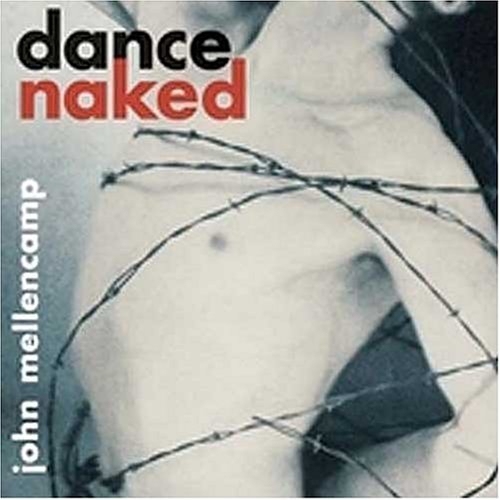
Dance Naked (1994)

1. Dance Naked
2. Brothers
3. When Margaret Comes to Town
4. Wild Night
5. L.U.V.
6. Another Sunny Day 12/25
7. Too Much To Think About
8. The Big Jack
9. The Breakout
Clocking in at just under 30 minutes and released a mere nine months after its predecessor (Human Wheels), Dance Naked raised a few eyebrows upon arrival. Albums released in such short turnaround are often met with suspicion—more likely to be seen as stopgaps or contractual obligations than genuine creative statements. And on first listen, it’s easy to mistake this record for exactly that: a quick, uncomplicated batch of songs that breeze by without leaving much behind.
But to write Dance Naked off as a throwaway would be a mistake.
While the album may be brief, there’s intention behind its simplicity. This isn’t an artist running on fumes—it’s one choosing to strip things down to the bare essentials. Gone are the layers of rustic instrumentation that marked much of Mellencamp’s work in the late ’80s and early ’90s. In their place are tight arrangements, short runtimes, and a distinctly no-frills attitude that harkens back to the rawer spirit of Uh-Huh or even American Fool, albeit with a middle-aged lens.
The most familiar track here is, unsurprisingly, a cover: a spirited duet version of Van Morrison’s Wild Night, which pairs Mellencamp with newcomer Me’Shell Ndegeocello. It’s the album’s clear standout—crisp, full of bounce, and benefiting from a level of polish the rest of the album mostly avoids. But while Wild Night may be the single, it’s not necessarily the heart of the record. That distinction belongs to lesser-known tracks like L.U.V. and Too Much to Think About. These songs may be modest in ambition, but they showcase Mellencamp’s continued ability to craft small, effective pop-rock tunes with heart and grit. They’re catchy, unpretentious, and delivered with just enough emotional weight to linger after the record ends. If anything, the simplicity works in their favor—no clutter, no distractions, just clean songwriting.
Still, there’s no denying the album’s brevity can make it feel slight. At under half an hour, Dance Naked doesn’t offer the immersive experience of his earlier work. Some of the tracks beg for a bit more care or development, and it’s hard not to wish that a few of them had been given more room to stretch out.
By this point, Mellencamp’s commercial peak was behind him. Radio had largely moved on, and his newer material—no matter how strong—was increasingly being overshadowed by fan demand for the hits of a decade prior. That reality, coupled with a minor heart attack during the album’s supporting tour, marked this period as something of a transitional one. Dance Naked feels like a reset—short, sharp, and slightly defiant.
It may not be essential Mellencamp, but it’s far from disposable. Given the right mood and a short window of time, this one holds up surprisingly well.
Go back to the main page
Go To Next Review